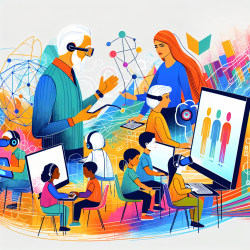Introduction
In a world where social isolation is a growing concern, especially among refugee communities, innovative approaches are needed to foster inclusion and cohesion. The research article titled "Social cohesion through football: a quasi-experimental mixed methods design to evaluate a complex health promotion program" sheds light on how football can be a catalyst for social change. This blog explores the findings of this study and how practitioners can leverage these insights to enhance their practice.
The Power of Football in Social Cohesion
Football United (FUn) is a program designed to promote social inclusion and cohesion in communities with high refugee settlement in New South Wales, Australia. The program employs football as a vehicle to bring together individuals from diverse backgrounds, fostering mentorship, leadership, and community linkages. The study used a quasi-experimental design to evaluate the impact of FUn on participants' emotional health, resilience, and social inclusion.
Key Findings and Implications for Practitioners
The research highlights several key outcomes:
- Improved Emotional Health: Participants in the FUn program reported better emotional health and resilience compared to those who did not participate.
- Enhanced Social Inclusion: The program significantly contributed to feelings of social inclusion and belonging among participants.
- Community Cohesion: Football United fostered social cohesion within schools and the broader community, bridging gaps across cultural and ethnic lines.
For practitioners, these findings emphasize the importance of integrating sports-based interventions into their practice. By fostering environments that encourage participation in sports like football, practitioners can enhance social inclusion and emotional well-being among refugee populations.
Encouraging Further Research
While the study provides valuable insights, it also highlights the need for further research to explore the mechanisms through which sports programs influence social cohesion. Practitioners are encouraged to engage in data-driven evaluations of similar programs to refine strategies and maximize impact.
Conclusion
Football United exemplifies how sports can be leveraged as a powerful tool for social change. By implementing the insights from this study, practitioners can improve outcomes for refugee communities, fostering a more inclusive and cohesive society. To read the original research paper, please follow this link: Social cohesion through football: a quasi-experimental mixed methods design to evaluate a complex health promotion program.










